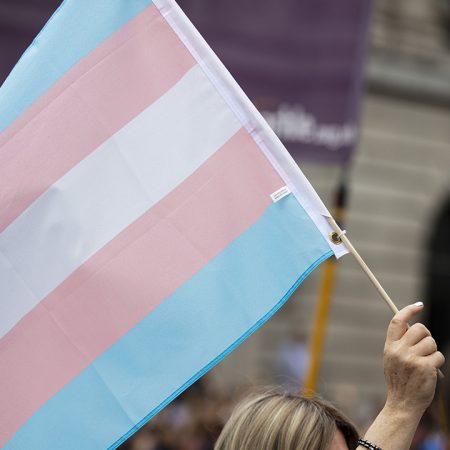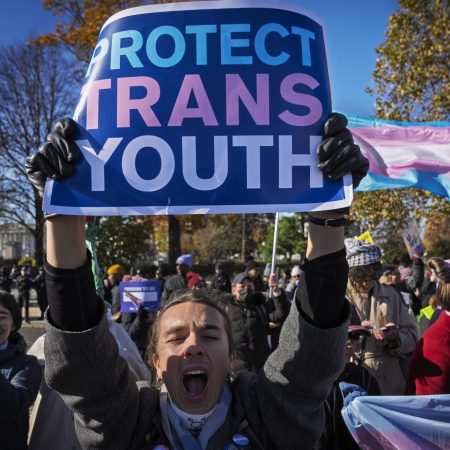The Metro: Trans community fears for LGBTQ rights after Trump’s reelection
Many people in the queer community are on edge after Donald Trump’s reelection in November.
The Trevor Project, a leading suicide prevention and crisis intervention organization for LGBTQ+ young people, reported a 700% increase in calls after the 2024 election.
Subscribe to The Metro on Apple Podcasts, Spotify, NPR.org or wherever you get your podcasts.
Trump has uttered no shortage of transphobic rhetoric, leaving many concerned that he’ll roll back federal protections for transgender people.
Detroiter Valerie Jean Blakely, who has a 16-year-old transgender son, shares those same concerns. She joined The Metro on Thursday to discuss her feelings of anxiety and fear for her family with Trump back in the White House.
After the presidential election, Blakely said she and her family sat in a bedroom for two days, unpacking their anxieties and discussing what Trump’s reelection could mean for their family, and for transgender rights more broadly.
Blakely shared her fears that Trump’s election has emboldened transphobic people to openly come after the LGBTQ community.
“Trump supporters immediately came for trans people, like, immediately,” she said. “It was so stark to me, it does not feel like it’s getting better. It felt like it was a little easier when he was six, to be fair, because it didn’t seem… the hate and the bigotry didn’t seem so, you know, violent.”
Use the media player above to hear the full conversation.
More headlines from The Metro on Dec. 12, 2024:
- The city of Detroit is the 10th U.S. city to get a designated Michelin Green Guide highlighting its cultural attractions, Visit Detroit announced this week. Claude Molinari, president and CEO of Visit Detroit, joined the show to discuss the designation.
- The Ruth Ellis Center is well known within the LBGTQ+ community, often being a lifeline for our most unprotected LGBTQ brothers and sisters. Ruth Ellis herself was one of the oldest and proudest Black lesbians of her time. Mykell Price, director of talent, equity and inclusion for the Ruth Ellis Center, joined the show to discuss what it’s like to be a trans person in Detroit today, and what resources are available.
- In partnership with the State of Michigan and Detroit at Work, The Michigan Central Talent Innovation Training Fund was created to support start-ups. More than $1.5 million will go towards skill building, growing and diversifying Detroit’s business community.
- Democrats have had control of the state House, Senate, and Governor’s office since the 2022 midterms. The “trifecta” government meant the state legislature and Gov. Gretchen Whitmer could pursue and advance a policy agenda without Republican support. But that’s changing come January, when Michigan House Democrats will lose their majority. To discuss this, Michigan Public Radio Network reporter Colin Jackson joined the show.
Listen to The Metro weekdays from 10 a.m. to noon ET on 101.9 FM and streaming on-demand.
Trusted, accurate, up-to-date.
WDET strives to make our journalism accessible to everyone. As a public media institution, we maintain our journalistic integrity through independent support from readers like you. If you value WDET as your source of news, music and conversation, please make a gift today. Donate today »The post The Metro: Trans community fears for LGBTQ rights after Trump’s reelection appeared first on WDET 101.9 FM.

